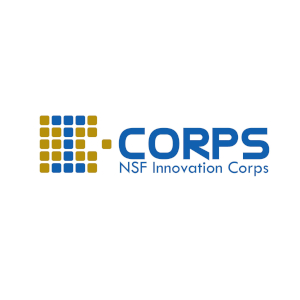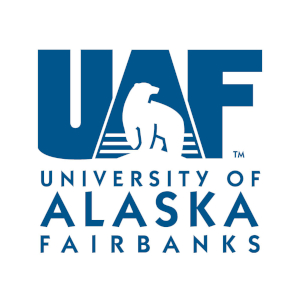Research
Focus Areas
AI-supported systems can analyze thousands of data points online to identify potential cyber security threats and help with the prevention of cyberattacks. Over the past years, cyberattacks have grown in scale and complexity.
Advantages of AI in Cyber Security
Detecting New Threats
Through algorithms, AI-based systems can learn to identify new threats and ransomware. Plus, they can detect changes in existing threats, thus shielding the organization from cyberattacks.
Battling Bots
Bots automate repetitive and pre-defined tasks. They’ve revolutionized customer services because of their ability to work much faster than humans. Though some bots are programmed by hackers to steal customer credentials, send spam, or create bogus accounts.
Breach Risk Protection
AI systems help an organization manage its IT asset inventory, which comprises the hardware, software, and applications linked to the information system. AI also helps companies understand the strength and weaknesses of their information security system.
Better Endpoint Protection
The shift to remote working has led to an increase in the number of endpoints. This creates a serious challenge because securing thousands of devices and users from cybersecurity threats is difficult.
Research Initiatives
Faruque, S., & Ranganathan, P. (2019). Secure Smart Grid Communications,U.S. Patent No. 10,284,373. Washington, DC: U.S. Patent and Trademark Office
- Develop Real-Time Machine Learning Models for SCADA or Synchrophasor Datasets - The project has data set containing physical and cyber fault signatures with time stamp information. The resolution of the data is at very high speed. The end goal is to detect these signatures using machine learning algorithms, perform dimensionality reduction methods, at 5-minute resolution and design a FPGA hardware unit for PMUs.
- GPS/ADS-B Anomaly detection using machine learning algorithms - The project will use simulated GPS/ADS-B data to model drop outs and erroneous data and apply machine learning algorithms to identify and track anomalies (magnitude, and duration) of various parameters such as timestamp, altitude, speed etc.
- Vehicular CAN Data Analysis for Optimal ECU operations - The project will collect Controller Area Network Data from multiple vehicles and makes and analyze the CAN data using ON-Board Diagnostic Module. The project has multi-fold goals 1) to develop machine learning based algorithms to identify ECU identification numbers; 2) map ECU to varying signatures such as braking, steering, etc. Although Software component is primary, the project can be extended to include the development of embedded hardware security module to exploits attack vectors in CAN ports.
- El Mrabet, Z., Sugunaraj, N., Ranganathan, P., & Abhyankar, S. (2022). Random Forest Regressor-Based Approach for Detecting Fault Location and Duration in Power Systems. Sensors, 22(2), 458.
- Mohan, J., Sugunaraj, N., & Ranganathan, P. (2022). Cyber Security Threats for 5G Networks. In International Conference on Electro Information Technology. Mankota; IEEE.
- Sugunaraj, N., Ramchandra, A., & Ranganathan, P. (2022). Cyber Fraud Economics, Scam Types, and Potential Measures to Protect U.S. Seniors: A Short Review. In International Conference on Electro Information Technology. Mankota; IEEE.
- El Mrabet, Z., & Ranganathan, P. (2022). Cyber-Physical Attack Detection Approaches in the Wide Area Measurement System: A Survey. Power And Energy Systems, Elsevier, (under review).
- Sugunaraj, N., Vrtis, J., Snyder, J., & Ranganathan, P. (2022). False Data Injection Modeling & Detection Using Unsupervised Learning. In North American Power Symposium (NAPS) 2022. Salt Lake City, UT; IEEE.
- S.E.V.S. Pillai and W.-C. Hu, "Mobile text misinformation detection using effective information retrieval methods". Information Security and Privacy in Smart Devices: Tools, Methods, and Applications, IGI Global, 2022 (under review).
- S. E. V. S. Pillai, A. A. ElSaid and W. -C. Hu, "A Self-Reconfigurable System for Mobile Health Text Misinformation Detection," 2022 IEEE International Conference on Electro Information Technology (eIT), 2022, pp. 242-247, doi: 10.1109/eIT53891.2022.9813840.
- W.-C. Hu, S. E. V. S. Pillai, and A. A. ElSaid, ‘Mobile Health Text Misinformation Identification Using Mobile Data Mining’, International Journal of Mobile Devices, Wearable Technology, and Flexible Electronics, vol. 12, no. 1, pp. 1–14, Oct. 2022.
- S.E.V.S. Pillai and W.-C. Hu, "Effective information retrieval for mobile misinformation identification". In Proceedings of the 2022 International Conference on Engineering, Science and Technology (IConEST 2022), Austin, TX, October 13-16, 2022.
- S.E.V.S. Pillai and W.-C. Hu, "Mobile users versus service providers in privacy preservation using dummy locations". In Proceedings of the 2022 International Conference on Engineering, Science and Technology (IConEST 2022), Austin, TX, October 13-16, 2022.
- T. T. Khoei, H. O. Slimane, and N. Kaabouch, “A Comprehensive Survey on the Cyber-Security of Smart Grids: Cyber-Attacks, Detection, Countermeasure Techniques, and Future Directions.” arXiv, 2022.
- T. T. Khoei, A. Gasimova, M. A. Ahajjam, K. A. Shamaileh, V. Devabhaktuni and N. Kaabouch, "A Comparative Analysis of Supervised and Unsupervised Models for Detecting GPS Spoofing Attack on UAVs," 2022 IEEE International Conference on Electro Information Technology (eIT), 2022, pp. 279-284, doi: 10.1109/eIT53891.2022.9813826.
- J. Price, Y. Li, K. A. Shamaileh, Q. Niyaz, N. Kaabouch and V. Devabhaktuni, "Real-time Classification of Jamming Attacks against UAVs via on-board Software-defined Radio and Machine Learning-based Receiver Module," 2022 IEEE International Conference on Electro Information Technology (eIT), 2022, pp. 1-5, doi: 10.1109/eIT53891.2022.9813923.
- H. O. Slimane, S. Benouadah, K. A. Shamaileh, V. Devabhaktuni and N. Kaabouch, "ADS-B Message Injection Attack on UAVs: Assessment of SVM-based Detection Techniques," 2022 IEEE International Conference on Electro Information Technology (eIT), 2022, pp. 405-410, doi: 10.1109/eIT53891.2022.9813819.
- T. T. Khoei, W. C. Hu and N. Kaabouch, "Residual Convolutional Network for Detecting Attacks on Intrusion Detection Systems in Smart Grid," 2022 IEEE International Conference on Electro Information Technology (eIT), 2022, pp. 231-237, doi: 10.1109/eIT53891.2022.9813983.
- H. O. Slimane, S. Benouadah, T. T. Khoei and N. Kaabouch, "A Light Boosting-based ML Model for Detecting Deceptive Jamming Attacks on UAVs," 2022 IEEE 12th Annual Computing and Communication Workshop and Conference (CCWC), 2022, pp. 0328-0333, doi: 10.1109/CCWC54503.2022.9720830.
- B. Bansal, W. C. Hu, and N. Kaabouch, ‘Detecting mobile pandemic misinformation by using mobile text/data mining’, in 25th World Multi-Conference on Systemics, Cybernetics and Informatics, WMSCI 2021, 2021, pp. 114–119.
- Foote, R., Sugunaraj, N., & Ranganathan, P. (2021). Low Cost ICS Network Scanning For Vulnerability Prevention. In EAI International Conference on Cognitive Computing and Cyber Physical Systems. Springer.
- T. T. Khoei, G. Aissou, W. C. Hu and N. Kaabouch, "Ensemble Learning Methods for Anomaly Intrusion Detection System in Smart Grid," 2021 IEEE International Conference on Electro Information Technology (EIT), 2021, pp. 129-135, doi: 10.1109/EIT51626.2021.9491891.
- F. Salahdine, Z. El Mrabet and N. Kaabouch, "Phishing Attacks Detection A Machine Learning-Based Approach," 2021 IEEE 12th Annual Ubiquitous Computing, Electronics & Mobile Communication Conference (UEMCON), 2021, pp. 0250-0255, doi: 10.1109/UEMCON53757.2021.9666627.
- El-Rewini, Z., Sadatsharan, K., Sugunaraj, N., Selvaraj, D. F., Plathottam, S. J., & Ranganathan, P. (2020). Cybersecurity attacks in vehicular sensors. IEEE Sensors Journal, 20(22), 13752-13767.
- W.-C. Hu, B. Bansal, and N. Kaabouch, 'Using Incremental Direction Searches to Stay Away from COVID-19'.
- El-Rewini, Z., Sadatsharan, K., Selvaraj, D. F., Plathottam, S. J., & Ranganathan, P. (2020). Cybersecurity challenges in vehicular communications. Vehicular Communications, 23, 100214.
- F. Salahdine and N. Kaabouch, "Security threats, detection, and countermeasures for physical layer in cognitive radio networks: A survey", Physical Communication, vol. 39, p. 101001, 2020.
- E. Ghribi, T. T. Khoei, H. T. Gorji, P. Ranganathan and N. Kaabouch, "A Secure Blockchain-based Communication Approach for UAV Networks," 2020 IEEE International Conference on Electro Information Technology (EIT), 2020, pp. 411-415.
- Badrouchi, F. et al. (2020). Cybersecurity Vulnerabilities in Biomedical Devices: A Hierarchical Layered Framework. In: Raj, P., Chatterjee, J., Kumar, A., Balamurugan, B. (eds) Internet of Things Use Cases for the Healthcare Industry. Springer, Cham.
- I. J. Jensen, D. F. Selvaraj and P. Ranganathan, "Blockchain Technology for Networked Swarms of Unmanned Aerial Vehicles (UAVs)," 2019 IEEE 20th International Symposium on "A World of Wireless, Mobile and Multimedia Networks" (WoWMoM), 2019, pp. 1-7.
- M. Pozniak, D. Sadhukhan and P. Ranganathan, "RF Exploitation and Detection Techniques using Software Defined Radio: A Survey," 2019 IEEE International Conference on Electro Information Technology (EIT), 2019, pp. 345-350.
- Wen-Chen Hu, Naima Kaabouch, and Hongyu Guo, "Location privacy protection using dummy locations and routes". In Proceedings of the 23rd World Multi-Conference on Systemics, Cybernetics and Informatics (WMSCI 2019), Orlando, Florida, USA, July 6-9, 2019.
- Z. E. Mrabet, D. F. Selvaraj, A. S. Nair and P. Ranganathan, "Detection of the False Data Injection Attack in Home Area Networks using ANN," 2019 IEEE International Conference on Electro Information Technology (EIT), 2019, pp. 176-181.
- F. Salahdine and N. Kaabouch, “Social Engineering Attacks: A Survey,” Future Internet, vol. 11, no. 4, p. 89, Apr. 2019, doi: 10.3390/fi11040089. [Online]. Available: http://dx.doi.org/10.3390/fi11040089
- M. Pozniak and P. Ranganathan, "Counter UAS Solutions Through UAV Swarm Environments," 2019 IEEE International Conference on Electro Information Technology (EIT), 2019, pp. 351-356.
- M. Bouabdellah, E. Ghribi and N. Kaabouch, "RSS-Based Localization with Maximum Likelihood Estimation for PUE Attacker Detection in Cognitive Radio Networks," 2019 IEEE International Conference on Electro Information Technology (EIT), 2019, pp. 1-6, doi: 10.1109/EIT.2019.8834095.
- F. Salahdine and N. Kaabouch, “Social Engineering Attacks: A Survey,” Future Internet, vol. 11, no. 4, p. 89, Apr. 2019, doi: 10.3390/fi11040089. [Online]. Available: http://dx.doi.org/10.3390/fi11040089
- M. Riahi Manesh and N. Kaabouch, ‘Cyber-attacks on unmanned aerial system networks: Detection, countermeasure, and future research directions’, Computers & Security, vol. 85, pp. 386–401, 2019.
- M. R. Manesh, J. Kenney, W. C. Hu, V. K. Devabhaktuni and N. Kaabouch, "Detection of GPS Spoofing Attacks on Unmanned Aerial Systems," 2019 16th IEEE Annual Consumer Communications & Networking Conference (CCNC), 2019, pp. 1-6.
- Horton, E., Ranganathan, P. Development of a GPS spoofing apparatus to attack a DJI Matrice 100 Quadcopter. J. Glob. Position. Syst. 16, 9 (2018).
- Wen-Chen Hu, Naima Kaabouch, Hongyu Guo, and Ahmed El-Saied, "Dummy locations for robust privacy preservation of location-based services". In Proceedings of the 2018 International Conference on Engineering, Technology, and Applied Science (ICETA 2018), Taipei, Taiwan, June 25-27, 2018.
- W. Kayser et al, "Next-Generation Transportation Vulnerabilities," Proceedings of the International Conference on Embedded Systems, Cyber-Physical Systems, and Applications (ESCS), pp. 71-76, 2018.
- A. Said et al, "Smart Home Vulnerabilities – A Survey," Proceedings of the International Conference on Embedded Systems, Cyber-Physical Systems, and Applications (ESCS), pp. 83-87, 2018.
- J. Pollack and P. Ranganathan, "Social Engineering and Its Impacts on Critical Infrastructure: A Comprehensive Survey," Proceedings of the International Conference on Security and Management (SAM), pp. 122-128, 2018.
- Z. E. Mrabet, Y. Arjoune, H. E. Ghazi, B. A. A. Majd, and N. Kaabouch, “Primary User Emulation Attacks: A Detection Technique Based on Kalman Filter,” Journal of Sensor and Actuator Networks, vol. 7, no. 3, p. 26, Jul. 2018, doi: 10.3390/jsan7030026. [Online]. Available: http://dx.doi.org/10.3390/jsan7030026
- J. Pollack and P. Ranganathan, "Aviation Navigation Systems Security: ADS-B, GPS, IFF," Proceedings of the International Conference on Security and Management (SAM), pp. 129-135, 2018.
- French, R. & Ranganathan, P. (2017). Cyber attacks and defense framework for unmanned aerial systems (uas) environment. J Unmanned Aerial Syst, 3, 37-58.
- S. Faruque and P. Ranganathan, “A Secure Wireless Spectrum Control, Error Correction Scheme in Synchrophasors,” Int. J. Handheld Comput. Res., vol. 5, no. 3, pp. 49–59, Jul. 2014.
- P. Ranganathan and S. Faruque, "A 3 Tier Spectrum Management Scheme and Security Assessment in Synchrophasors," 2014 National Wireless Research Collaboration Symposium, 2014, pp. 55-58.
- Siby Jose Plathottam (ANL), Kumar Jhala (ANL), Benjamin A Blakely (ANL), Manimaran Govindarasu (ISU), Prakash Ranganathan (UND), Julieta Giraldez (Kevala, Inc.), "Adaptive Cybersecurity for Distributed Energy Resources: A Game-Theoretic and Machine Learning Approach for Real-Time Threat Detection and Mitigation", Department of Energy (DoE), ($525,000), 10/2023-09/2026, (Submitted: June 2023, Status: Awarded).
- R. Adams, P. Ranganathan, W. Semke, "A56-Evaluating Electro Magnetic Compatibility for UAS Environment", Federal Aviation Authority (FAA) ASSURE, ($325,000), 8/2021-8/2023, (Submitted: August 2020, Status: Awarded).
- W. Semke, P. Ranganathan (Co-PI), R. Adams, “A44-Mitigating Global Positioning Systems Risks for UAS”, Federal Aviation Authority (FAA) ASSURE, ($325,000), 5/2021-8/2023, (Submitted: August 2020, Status: Awarded).
- Naima Kaabouch (UND Lead), Khair A Al Shamaileh (Purdue State University), "Collaborative Research: SaTC: CORE: Small: UAV-NetSAFE.COM: UAV Network Security Assessment and Fidelity Enhancement through Cyber-Attack-Ready Optimized Machine-Learning Platforms", ($399,478), (October 2020-September 2023).
- Ryan Adams and Naima Kaabouch, "Navigation & C2 Approaches to Degraded/Denied Environments", NASA, ($506,719), (July 2021-June 2023).
- Naima Kaabouch and Ryan Adams, "Command and Control technologies Assessment", NASA, ($412,213), (September 2021-October 2024).
- P. Ranganathan, Real-Time Machine Learning Models for Mitigating Cyber Attacks in Power Systems, ND EPScoR: Cyber Assistantship, ($10,000), 1/2021-08/2021, (Submitted: Nov 2020, Status: Awarded).
- Joe Vacek, Paul Snyder (CoPI), and Naima Kaabouch, "CyberSecurity and Safety Literature Review", Federal Aviation Administration (FAA), ($288,476), (October 2020-2021).
- Naima Kaabouch and Mohsen Manesh, "Securing Automatic Dependent Surveillance-Broadcast for Air Traffic Control", ND EPSCoR/NSF, ($60,366), (2017-2019).
- A. Bergstrom, P. Ranganathan, J. Neubert, S. Felege, “NSF: MRI: Acquisition of FlashTAIL - An All-NVMe Flash Storage Instrument for the Talon Artificial Intelligence & Machine Learning Cloud, $229,390, 10/2019-09/2022, (Submitted: 01/2019, Status: Awarded).
- P. Ranganathan (PI), N. Kaabouch, INTERN DCL - Topology Aware Resource Optimization and Uncertainty Quantification Energy Models for the Power Grid, $55,009, Program: GOALI,, Supported Ph.D. student Arun Sukumaran Nair to attend PNNL for six months, 10/2019-05/2020. (Submitted: 05/2019, Status: Awarded on 08/2019).
- Naima Kaabouch, "Enhancement of Spectrum Decision through Probabilistic Graphical Models", National Science Foundation (NSF), ($291,599), (2014-2018).
- P. Ranganathan (PI), D. Selvaraj (Post doc & Co-PI), “Missing Data Identification and Capturing Anomalies for Synchrophasors, Duke Energy-Electric Power Holding Company, ($130,000) (Submitted: 08/2019, Status: Awarded). 6. S. Noghanian, P. Ranganathan, J. Jensen, Legal Consideration in Safe and Secure Radio Frequency Wireless Power Transfer, Energy Environmental Research Center (EERC) grant, 12/2017-05/2018. ($2,500), (Submitted: 09/2017, Status: Awarded). December 2017-May 2018.
- P. Ranganathan, “Geo-Fence Detection System (GFDS) for Unmanned Aerial Vehicular Airspace to provide Counter Autonomy”, 05/2017-08/2021, Rockwell Collins, ($25,000), (Submitted: March 2017, Status: Awarded).
- P. Ranganathan (PI), Cyber Threat Security Analyzer using MU8000 equipment grant, College of Engineering and Mines (CEM) Fund, UND Dean’s office, ($30,000), (Submitted: 2014, Status: Awarded).
- P. Ranganathan, “Cyber Attack Simulator for Unmanned Aerial Vehicular networks”, 05/2015-08/2018, Rockwell Collins, ($25,000), (Submitted: March 2015, Status: Awarded).
- P. Ranganathan, N. Kaabouch, Topology Aware Resource Optimization and Uncertainty Quantification Energy Models for the Power Grid, $215, 622, 09/2015-08/2021 (Submitted: 02/2015, Status: Awarded).
Partners
- Advanced Engineering and Environmental Services (AE2S)
- Allete Inc
- Collins Aerospace
- U.S. Department of Defense
- Drexel University
- Duke Energy
- Eaton
- EERC
- Embry-Riddle Aeronautical University
- North Dakota Established Program to Stimulate Competitive Research (ND EPSCoR)
- Federal Aviation Administration (FAA)
- Kansas State University
- University of Kansas
- Minnkota Power Cooperative
- North Dakota Department of Agriculture
- NSF Innovation Corps
- National Science Foundation (NSF)
- Oregon State University
- SkyScopes
- Tau Drones
- University of Alaska Fairbanks




















